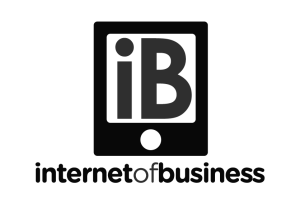The Internet of Things: What do journalists want to hear?
 By Andy
By Andy
 Every single member of our team at Spark interacts with the press on a regular basis, so forming long-term relationships with journalists plays a crucial role in the results we achieve for clients. I particularly enjoy taking the opportunity to catch up face-to-face, and last week was lucky enough to meet up with Doug Drinkwater; following his move from SC Magazine, to hear about his new role as founding editor of Internet of Business.
Every single member of our team at Spark interacts with the press on a regular basis, so forming long-term relationships with journalists plays a crucial role in the results we achieve for clients. I particularly enjoy taking the opportunity to catch up face-to-face, and last week was lucky enough to meet up with Doug Drinkwater; following his move from SC Magazine, to hear about his new role as founding editor of Internet of Business.
While security is an area many of our clients are keen to discuss with the media, the Internet of Things is proving increasingly popular as we are seeing connected devices beginning to have a positive impact in business environments. The manufacturing sector is already heavily influenced by the IoT, having spent $29 billion on it in 2015, rising to a predicted $70 billion in 2020, while Doug told me that he witnessed huge excitement about the likes of Intel and Ericsson working on healthcare IoT projects on his recent visit to trade show Mobile World Congress.
Some of the clients we work with are even beginning to appoint internal heads of IoT and key spokespeople around the topic, so I was particularly keen to speak with Doug to get an understanding of what he perceives the state of the IoT to be.
My discussion with Doug revealed that there are three big trees blocking the path to adoption for businesses in many other sectors. They are:
- Deciding who leads the project within a business. Doug has been interacting with a range of people, from those with the term in their job title to CIOs, CTOs, Innovation Heads and even Heads of Digital Transformation. Without formalising who is in charge, businesses will struggle to drive things forward internally and new business conversations will prove challenging.
- ROI and building a business case. At this early stage, it can be difficult to find other industry examples to point to when attempting to present a case for IoT adoption. Many will struggle to secure buy-in from sceptics if they are unable to provide hard and fast figures around what kind of bang enterprises will get for their buck.
- Industry standardisation. Doug pointed out that playing a part in a format’s invention or development can be very important when technologies are still in their infancies. As enterprises come to lay the foundations, there are choices to be made which will have a big impact on the development of IoT inside enterprises, and its development in the wider world.
These three topics are of critical importance: the questions must be answered before the Internet of Things can go on to fulfil its massive potential in the business arena. Now is the time for proactive thought-leaders to provide the answers, and I cannot wait to begin working with some of our clients to figure out and communicate exactly what they are.